Garlinge Primary School and Nursery, Westfield Road, Margate, Kent, CT9 5PA

Garlinge Primary School and Nursery, Westfield Road, Margate, Kent, CT9 5PA
At Garlinge Primary School and Nursery, we provide all children with access to a broad and balanced English curriculum which is interesting, engaging and delivers a range of differentiated learning opportunities and challenges, which will develop a life-long love of learning. We recognise children’s prior learning, encourage the children to develop interpersonal skills, build resilience and become creative, critical thinkers. Children are supported to achieve their potential and progress with confidence to the next phase of their education.
We provide a rigorous and well-organised English curriculum that provides many purposeful opportunities for reading, writing and discussion. We believe that children need to develop a secure technical knowledge-base in English, which follows a clear pathway of progression as they advance. We know that a secure basis in literacy skills is crucial to a high-quality education and will give our children the tools they need to participate fully as a member of society.
At Garlinge Primary School and Nursery, we use a whole text (book) as a stimulus to deliver the National Curriculum in a cross-curricular way through topic-based learning. This allows for key skills to be applied in a purposeful and engaging context.
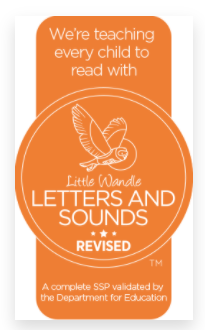
At Garlinge, we believe that all our children can become fluent readers and writers. This is why we teach reading through Little Wandle Letters and Sounds Revised, which is a systematic and synthetic phonics programme. We start teaching phonics in Nursery/Reception and follow the Little Wandle Letters and Sounds Revised progression, which ensures children build on their growing knowledge of the alphabetic code, mastering phonics to read and spell as they move through school.
As a result, all our children are able to tackle any unfamiliar words as they read. At Garlinge Primary School and Nursery, we also model the application of the alphabetic code through phonics in shared reading and writing, both inside and outside of the phonics lesson and across the curriculum. We have a strong focus on language development for our children because we know that speaking and listening are crucial skills for reading and writing in all subjects.
Letters and Sounds Phonics Information
Little Wandle Letters and Sound - Programme Progression Reception and Year 1 Overviews
Programme Overview for Year R and Year 1
Reading happens almost all of the time in our school and we try to promote a love of reading in everything that we do with the children. Here at Garlinge, we follow the Little Wandle Letters and Sounds Revised synthetic phonics programme and we use the reading books associated with this scheme to nurture and develop a child’s reading skills from the very beginning of Reception. Once a child has progressed beyond this programme, they are issued with a coloured reading book that compliments their ability (please see our Reading progression document below as a useful guide). Children are assessed in their reading or phonological knowledge on a termly basis by their class teacher. This ensures secure judgements in teacher assessments for reading.
Children are also assessed three times a year in their reading age, using the Salford reading assessment, ensuring that teachers have a firm understanding of a child’s reading ability and can direct them to suitable books and materials. Children in years 2 to 6 also have daily guided reading sessions in their classrooms to further develop the skills they need to become competent readers. Classes in these years also have weekly comprehension lessons aimed at improving their understanding, inference and higher order reading skills.
There are various initiatives that we use around school to promote a love of reading, these may be small year group or class competitions to encourage children to support each other and work as a team to improve their reading. These initiatives aim to inspire children to have a lifelong love of reading – something we as a school firmly believe benefits the child in terms of their educational success, wellbeing and personal development.
If you have any questions regarding your child’s reading, please do speak with their class teacher.
Reading Progression at Garlinge
For tips on how to get your child reading click on this link: www.savethechildren.org.uk/sites/default/files/documents/RODO-top-tips.pdf
World Book Day turned into World Book Week for us when celebrations began on Wednesday 5th March! Local author Sam Gayton visited the school and carried out writing workshops with the year 4 classes.
On March 6th characters from children’s stories from every genre imaginable arrived at school. All children joined staff to dress as some of their favourites as part of a packed programme of learning and fun activities in school. The magic of reading was celebrated across the school with all classes taking part in a reading activity linked to the book ‘Strong Like Me’ by Kelechi Okafor and Michaela Dias-Hayes. English leads for the school Miss Subramaniam and Miss Beaumont led assemblies in both key stages where the book was shared and some of the wonderful characters sat around each hall were discussed. We also welcomed author Sarah Ogilvie who ran an assembly for Years 5 and 6 followed by individual class workshops for the Year 6 classes based around her book ‘101: A maths story that will tickle your ribs and blow your mind!’ A range of activities were completed throughout the school, ranging from creating new stories and front covers for their chosen character, creating bookmarks, paired reading across key stages and a parent afternoon for Year 2.
On Friday 7th March we welcomed a visit from Gemma Hunt, children’s author, who is also known for presenting the CBeebies gameshow Swashbuckle, children in years 2 and 3 enjoyed workshops with her.
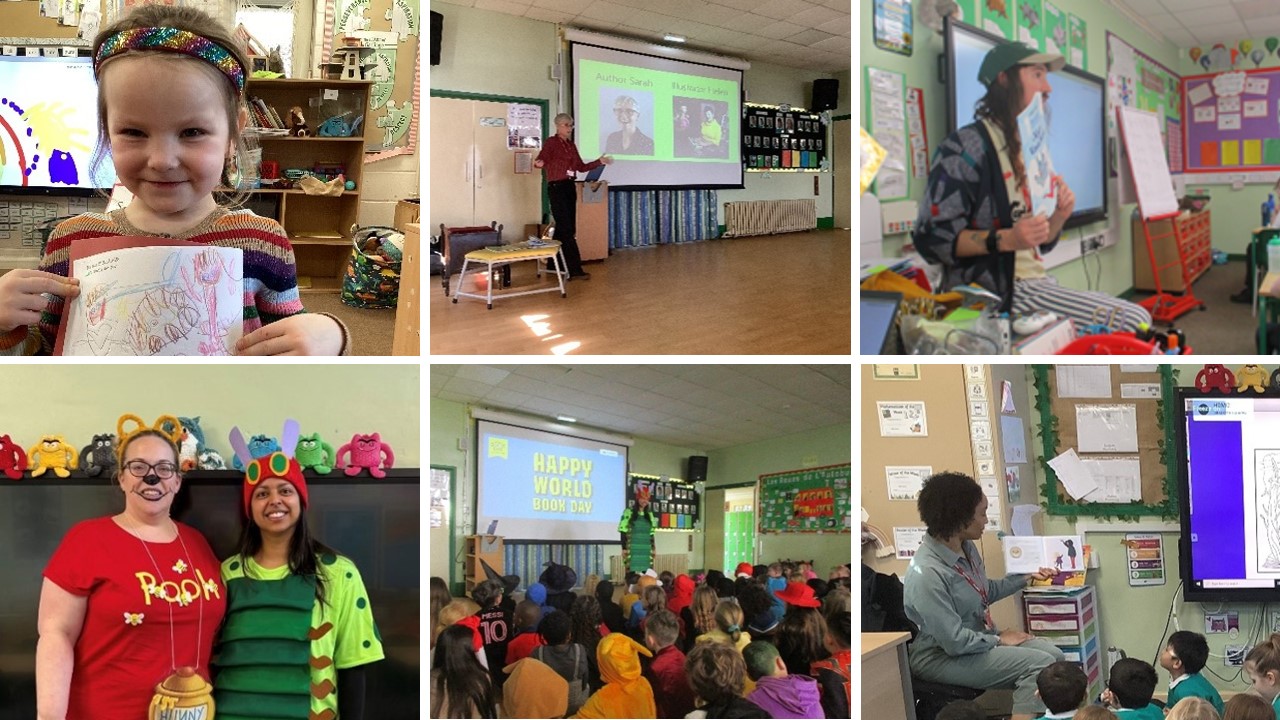
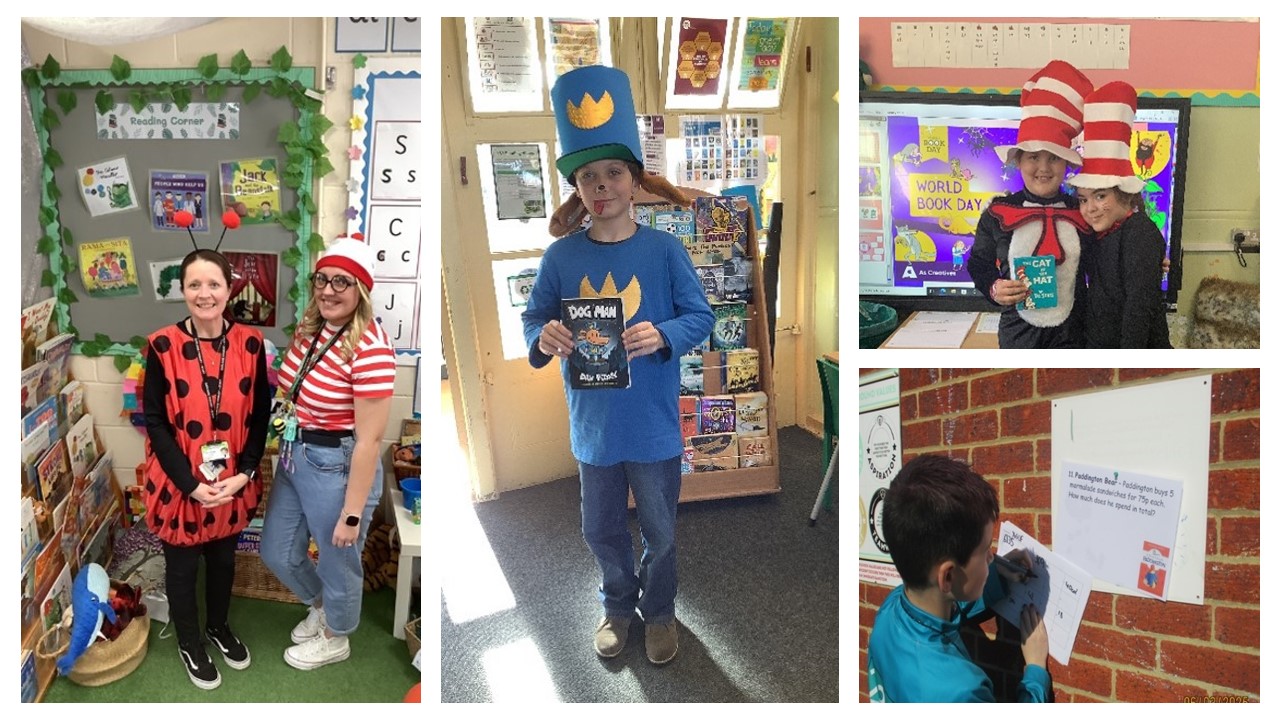
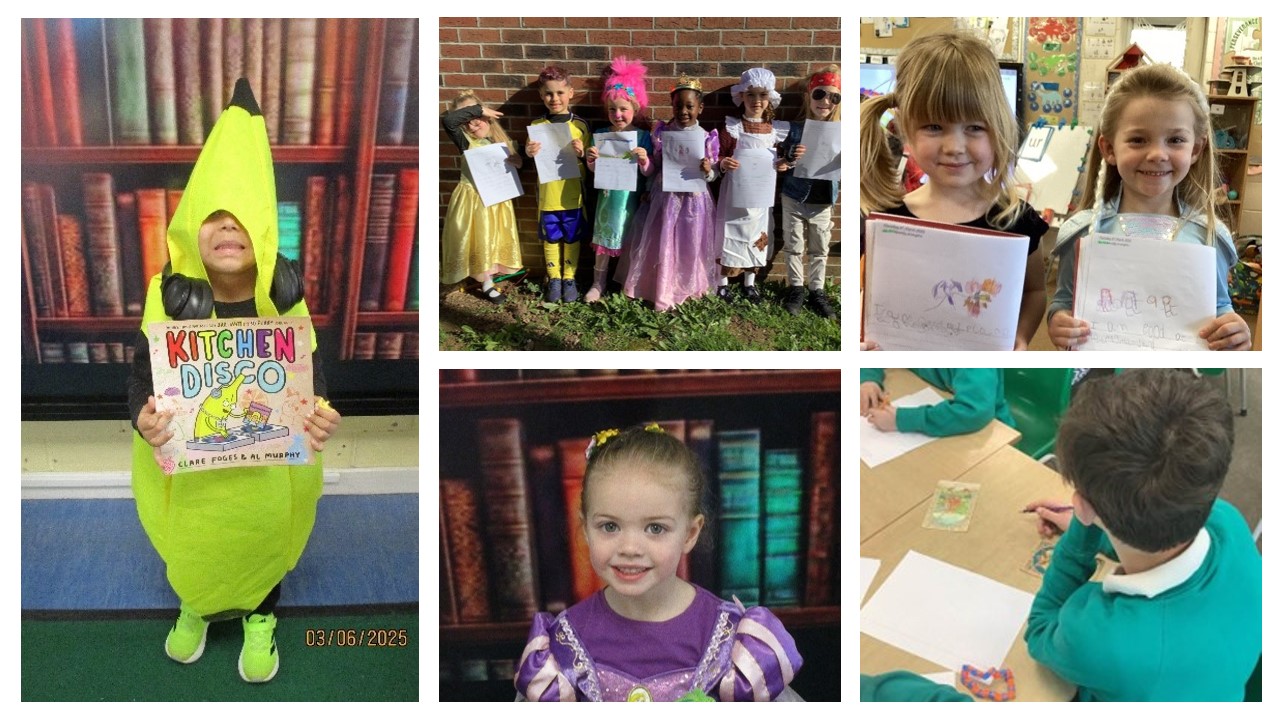
We are pleased to share with you our very own Garlinge book 'Oi Frog!' inspired by Kes Gray and Jim Field. Keep your eyes peeled for some of your creations and very clever rhymes! We are proud to share this wonderful work with you.
Please click here to view the Powerpoint presentation that was shown at the Year 1 phonics workshop. Below you will also find additional resources to help support your child:
Please click here to view the Powepoint that was shown at the Reception parents phonics workshop on Thursday 6 September. Below you will also find additional resources
The school has a Key Stage 1 and Key Stage 2 library area which offers a selection of different genre books. The children have an opportunity to visit the library and select books to borrow and take home.
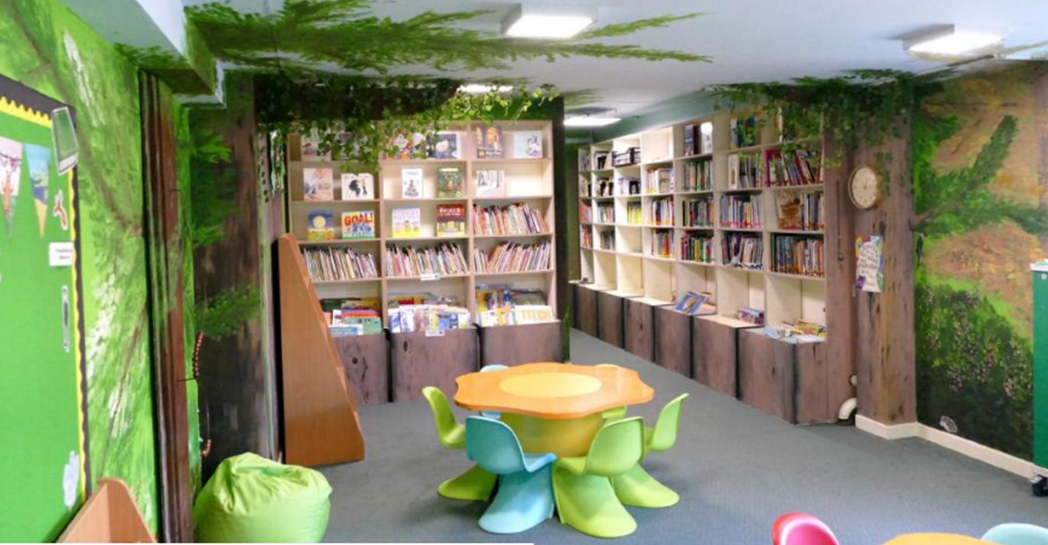
To inspire our children to have a lifelong love of reading, our school recently invited local artist Ty Locke in to transform our Key Stage 1 library in to an ‘enchanted British woodland’. What a fantastic job he has done! I’m sure many children will love to visit this reading space for years to come! To bring the mural to life, Ty included many bespoke features to make the library an exciting place to visit, including 20 hidden animals to find amongst the trees and woodland. Can you see any of them in the picture above? Why not visit our KS1 library to find the rest of these for yourself!
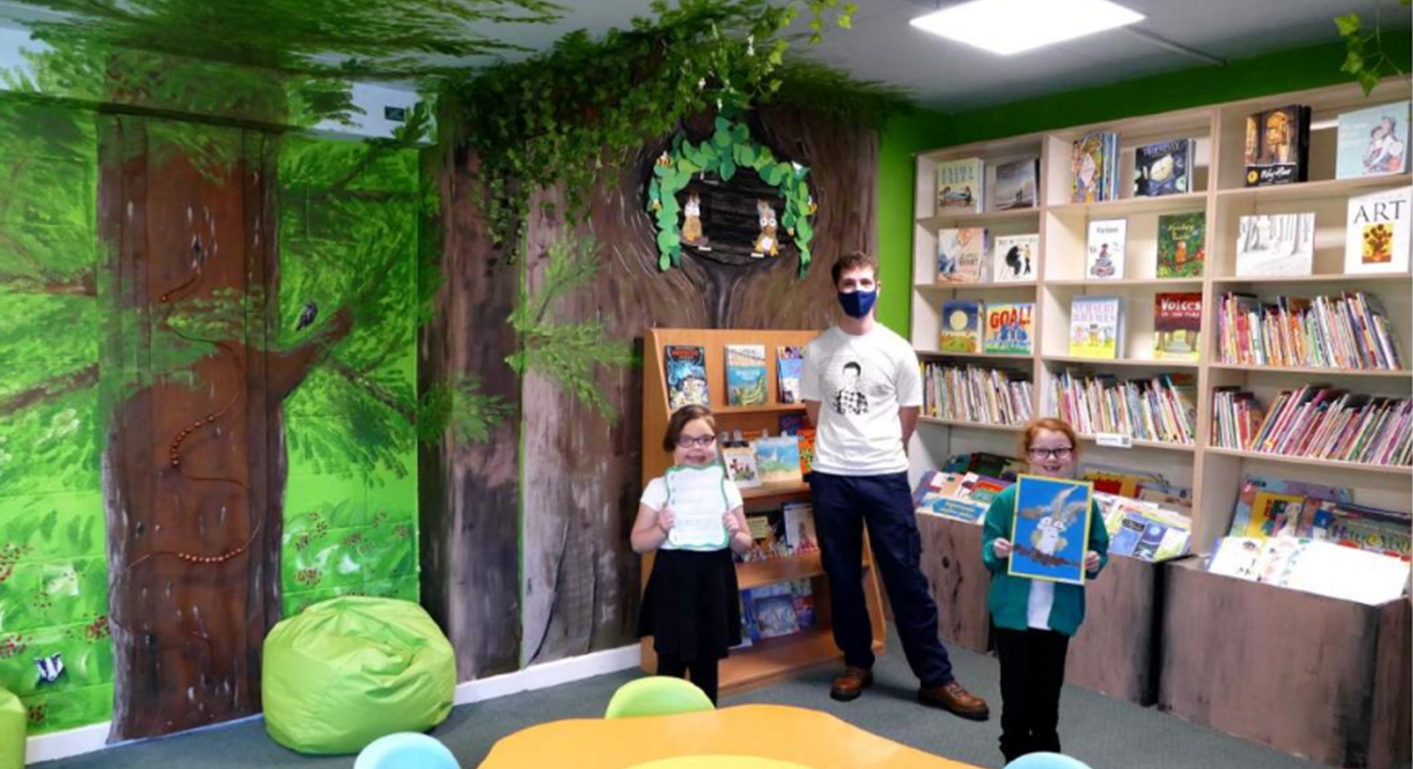
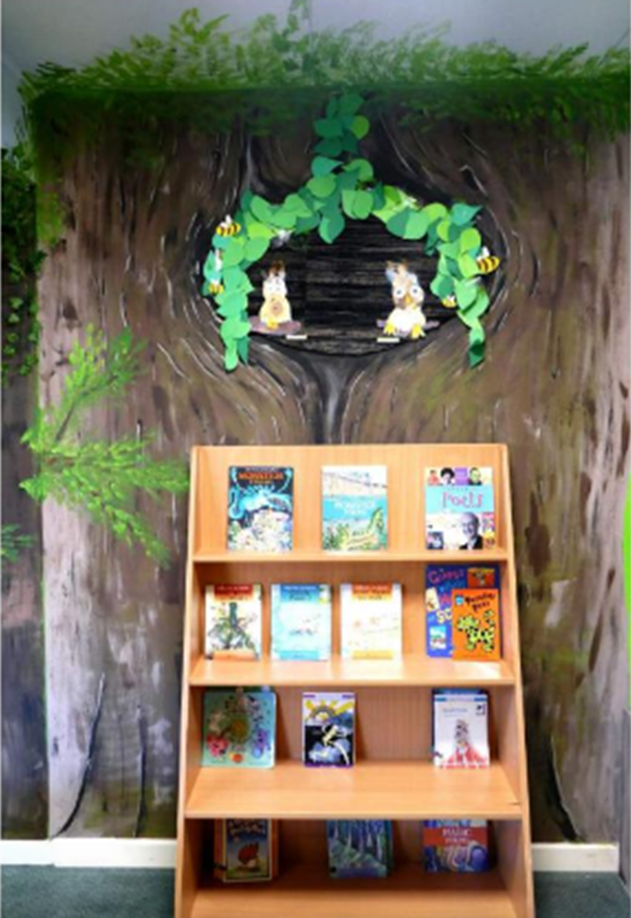
It has been fun to incorporate the children’s ideas and see them come to life with this project. We hope many of our children enjoy visiting this exciting reading area in which to further their enjoyment of books.
What do the children have to say about the library?
“It looks like a real enchanted forest, I can’t wait to read books in there!” Joel, Year 3.
“It’s amazing! It’s a 10/10 from us! I hope to be able to go there soon!” Kourntey, Year 3
Punctuation and grammar are taught regularly within class and where possible taught in a context. These skills allow for children to write accurately and using standard English. Children are provided with a wide range of opportunities to write in a variety of genres for a purpose and different audiences.
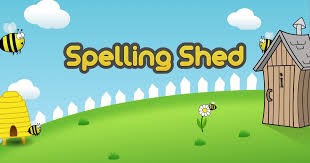 Spelling is taught throughout the school. Foundation Stage and Key Stage 1 to do this as part of their daily phonics sessions and years 2 to year 6 follow the Spelling Shed scheme. The programme is easy to use, flexible and comprehensive, providing sufficient guidance to implement an effective spelling teaching programme. The programme of study consists of termly overviews, breaking down the requirements of the National Curriculum into strands with individual lesson plans and resources teaching the full list of spelling rules required to become a comprehensive speller. Please ask your child’s class teacher for their individual log-in to access the online games.
Spelling is taught throughout the school. Foundation Stage and Key Stage 1 to do this as part of their daily phonics sessions and years 2 to year 6 follow the Spelling Shed scheme. The programme is easy to use, flexible and comprehensive, providing sufficient guidance to implement an effective spelling teaching programme. The programme of study consists of termly overviews, breaking down the requirements of the National Curriculum into strands with individual lesson plans and resources teaching the full list of spelling rules required to become a comprehensive speller. Please ask your child’s class teacher for their individual log-in to access the online games.
From year 2 onwards, the school encourages children to develop a cursive script for handwriting and the skills for developing this are taught and promoted in the classroom. In Early Years and KS1, we look at the movements needed to create the correct letter formation in line with our synthetic phonics programme, Little Wandle Letters and Sounds Revised. Handwriting skills are practised regularly in every classrooms with the aim to promote fluency and legibility.
Find links below for the text map for each year group. This includes the lead texts and genres that children study over the course of the year.